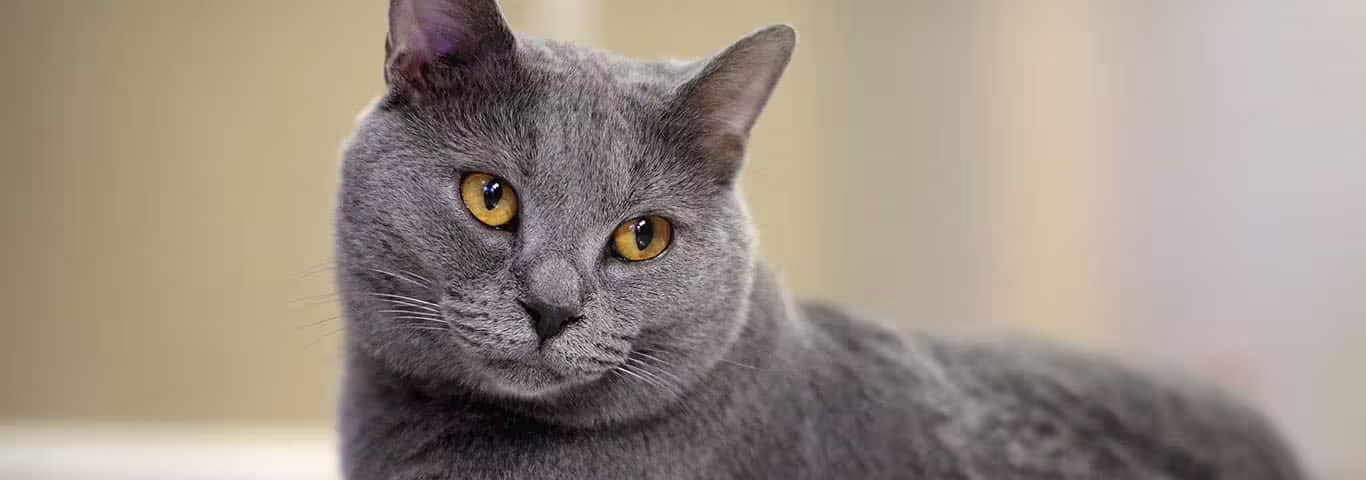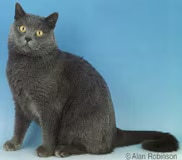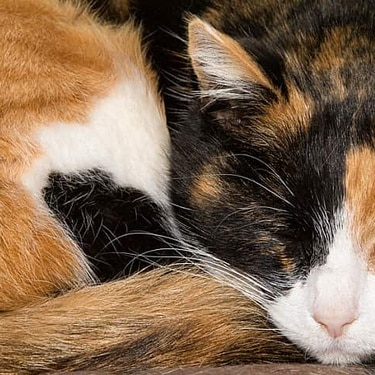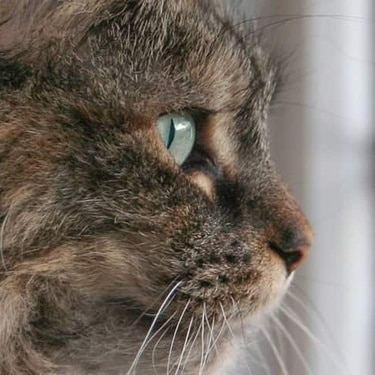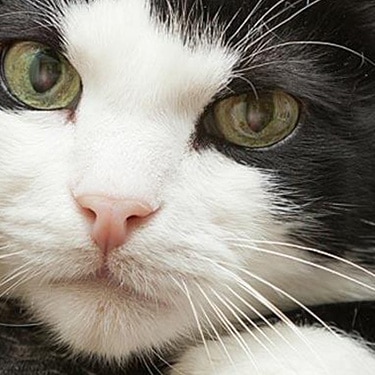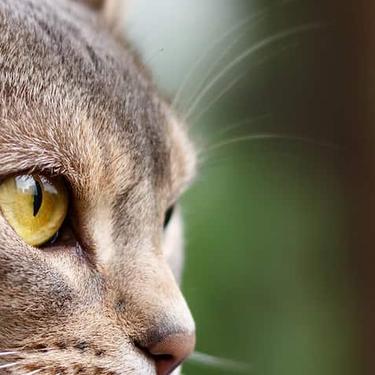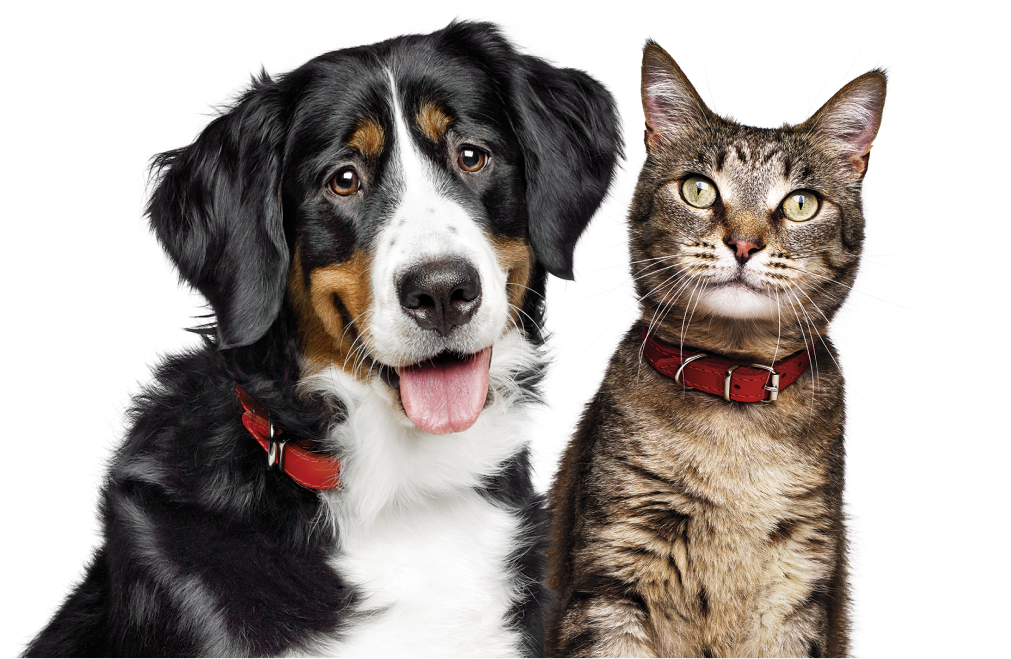The Chartreaux is a pleasant cat to have as a companion. She is easy going and placid. The Chartreaux is a fiercely loyal, loving cat and will attach herself to every member of her family.
While the Chartreaux will play, she actually doesn't need hourly attention. If she is in the mood to play, she will bring a toy to someone. The Chartreaux also plays well by herself. She is a good companion for single people as she plays in spurts and is comfortable by herself or with her parent.
The Chartreaux is a thick, muscular cat, so her nutrition must be carefully controlled. Despite the heavy boning and musculature of the breed, a proper weight must be kept and she should not get out of condition.
The Chartreaux will play when she wants to, and will find a toy or create one out of anything she finds if a cat toy is not available. Interactive play may be necessary to keep her in good shape and make certain that she gets adequate exercise. The Chartreaux likes hunting games where she can show her heritage.
A daily brushing is important for the Chartreaux, especially during the change of seasons when the coat is thickening or thinning. Even this shorthair cat can get knots in her coat if she isn't brushed regularly.
The Chartreaux has a religious background. This beautiful blue cat was probably brought to France from the mid-east in the 1500s. The Chartreaux were actively bred by Carthusian monks near Paris, and were probably working cats.
A methodical Chartreaux breeding program was started in France in the late 1920s, which resulted in a strong, healthy Shorthaired Blue cat with a lovely face and a powerful body. The Chartreaux was imported to Britain, not only to be bred as its own breed, but also to enhance the body, coat type and coat color of the British Shorthair.
During World War II, the Chartreaux was almost lost. Through the work of dedicated breeders, it has been brought back as a viable, healthy breed, although it is still relatively rare.












